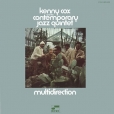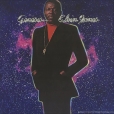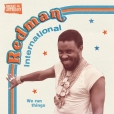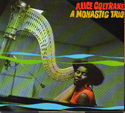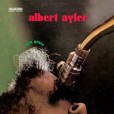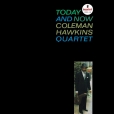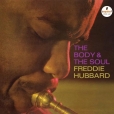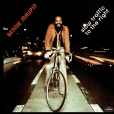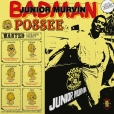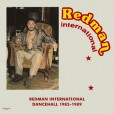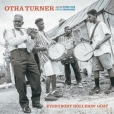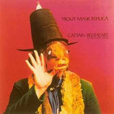Your basket is empty

Landmark Detroit jazz. Trumpeter Charles Moore was the founder of the Detroit Artist Workshop; he and pianist Kenny Cox would go on to found the highly influential Strata Records. The pair split the compositions here. The second of the Quintet’s two Blue Notes, AllMusic likens this 1969 session to Andrew Hill’s Grass Roots, Jackie McLean’s Jacknife, and Grachan Moncur’s Evolution.
A brawny, no-piano, three-horn quintet — Dave Liebman, Joe Farrell, Frank Foster — including bassist Gene Perla. Questing, widescreen post-bop from 1971.
Her debut as leader, a year after John’s death, with Pharoah Sanders, Jimmy Garrison, Ben Riley and Rashied Ali steeply conjuring an ecstatic blend of JC and Bud Powell, blues, gospel and free jazz, trained unflinchingly on Nature and Truth, witches and devils, the Mystical and the Divine.
Tremendous music — deeply rooted, rawly searching, still thrillingly uplifting.
‘Verve By Request.’
Slammed at the time as a sell-out, and what a joke that is. Brimming with raw physical emotion, but reaching out — in the revolutionary year of 1968 — to soul, rock and gospel.
Also the blues. When he was still at Cleveland High School, Albert spent two summers touring with none other than Little Walter. “The manner of living was quite different for me — drinking real heavy and playing real hard. We’d travel all day, finally arrive, take out our horns and play.”
Aged 25, signing off Impulse! with a wayward flourish, Hubbard plays beautifully throughout, boldly leading an orchestra and string section, 16-piece big band, and a septet with Curtis Fuller, Eric Dolphy, Wayne Shorter, Cedar Walton, Reggie Workman, and Louis Hayes. Shorter is arranger and conductor. Buckle up for Dolphy flipping his wig in Clarence’s Place.
‘Verve By Request.’
That’s Maupin on Bitches Brew, and Lee Morgan’s Live At The Lighthouse, and Head Hunters. He co-wrote Chameleon. From 1977, this is killer fusion in the same dazzling tradition — as confirmed by transformative readings of two classics by the Mwandishi sextet, Quasar and Water Torture, from the LP Crossings. We’re in the same neck of the woods as Eddie Henderson’s two deadly Blue Notes around this time — Sunburst and Heritage — and the great trumpeter is here. Also Patrice Rushen, who plays a blinder: check her out on the opener. Pat Gleeson, who introduced Herbie to synths, Head Hunters mainstay Paul Jackson, Blackbyrd McKnight, from Flood and Man-Child…
‘The trance blues stylings of Otha Turner and his Rising Star Fife And Drum Band should be a music classification unto itself, a whole new primitive take on drum and bass. This music is the oldest still-practiced post-colonial American music, and Turner was one of its greatest artists of the 20th century. Blowing the cane fife with a band of drummers as back up, The Rising Star Fife And Drum band was legendary in the hills of Tate County, Mississippi, where they would perform during the yearly goat picnics on Turner’s farm. These tracks were recorded by Luther Dickinson during such picnics and released when Turner was ninety years old. Everybody Hollerin’ Goat shows firsthand the hypnotic and rhythmic style of fife and drum music at its best — raw and beautiful. It is every bit as essential a document of America’s folk-music heritage as anything Harry Smith or Alan Lomax ever offered up for posterity. This first ever vinyl release of Everybody Hollerin’ Goat contains a whole side of unreleased recordings from one night of the picnic and is intended to bring the experience of hollerin’ for goat in Senatobia, Mississippi to the living room. Dancing around the plants is recommended (but don’t eat the pickled eggs).’
This is a top-notch reissue, with scrupulous sound restoration, and a lyric sheet in card.
Intrepidly sourcing Cal Schenkel’s original cover photograph for maximum definition and colour, it’s never looked so good, either,
Highly recommended, even if you’ve already got a copy.
